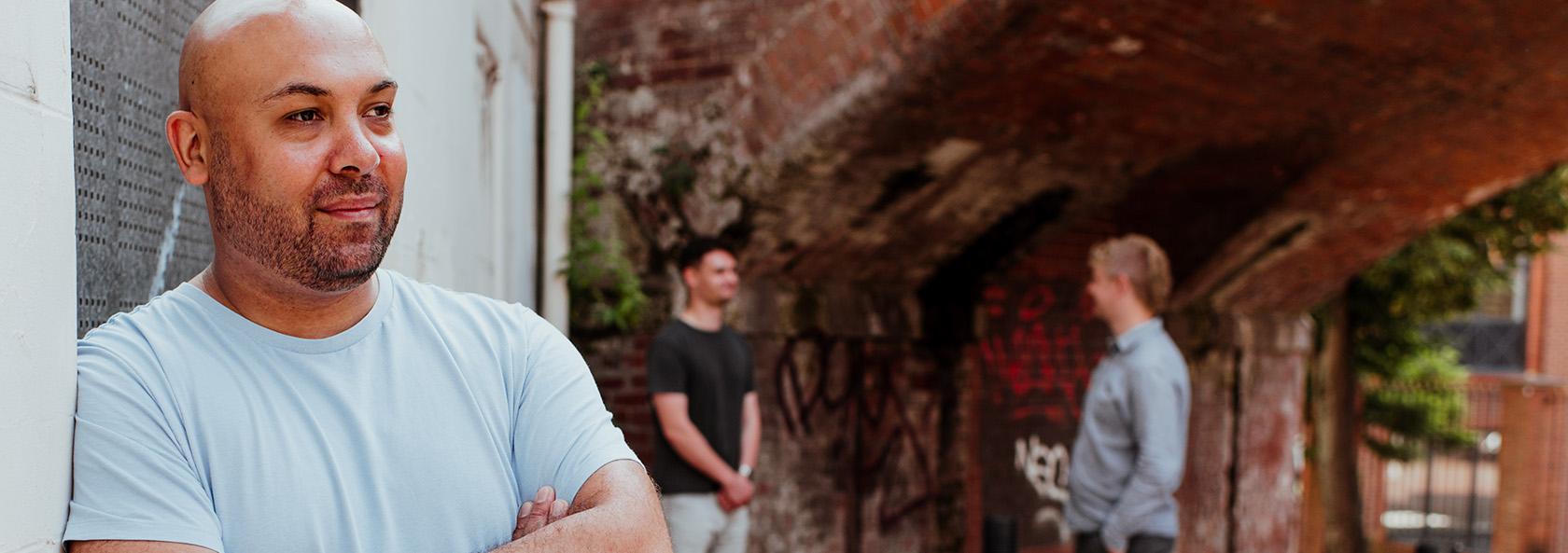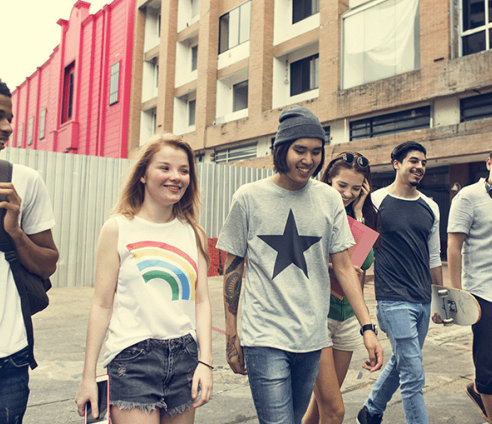Drugs and alcohol advice for young people
Help your mate
Your teens and early 20s are packed with new experiences, new friends and new places – whether you’re at school, starting your first job, or enrolling in college or uni. Chances are, you’ll have the opportunity to try out lots of things, which may include alcohol, drugs, smoking and vaping – or you’ll be around people who are using these substances.
It’s normal to be curious and anxious – and to have a lot of questions. It can be very exciting to have these new experiences, but it can also be scary, or make you feel different to how you expected.
We’re here to answer your questions, and to offer advice and support if you’d like – whether that’s for you, or your mates.
Alcohol
Drinking can be incredibly fun, whether you’re at a club, festival or just at home with a few friends. But alcohol affects everyone differently and can cause unpleasant or even dangerous effects.
We’ve put together some advice to help you understand the risks, drink more safely and help your mates in case they get into trouble on a night out.
Read our alcohol advice for young people.
Drugs
It's really likely that you'll come across drugs in one way or another and may be curious about trying them. Before you jump in, find out more about the risks and how you can keep yourself safe.
What are the risks with drugs?
While it’s common to experiment with drugs, that doesn’t mean it’s safe. If you know the risks, you can make the choice that’s right for you. Some risks are:
- You’re not sure what you’re getting. Drugs vary in strength, quality and effects. You can buy the same thing from the same dealer and find it varies massively from week to week. If you're not sure what you're taking, it's easy to overdose.
Be aware: We are seeing changes in the make-up of the drugs that people are using in the UK – they might be stronger than you might expect, or they might even be a completely different substance to what they were sold as. Read our advice on contaminated drugs.
There are side effects. Depending on what you’re taking, there can be lots of side effects. You can read about different drugs and their specific risks.
You might make bad choices. Drugs can lower your inhibitions and make you act differently. You might put yourself in a dangerous situation or do something you regret, like having an accident, getting into a fight, having unsafe sex, or sex you wouldn't want to have if you hadn't taken something.
It can hurt your relationships. If your parents find out you’re using drugs, they might not approve or understand, and it can cause arguments and make things difficult at home. Your friends, boyfriend or girlfriend might not like what you are doing either, which can affect – or end – your relationship.
You could end up in debt or in trouble. The cost of taking drugs can add up fast; you might find yourself in debt to your dealer, or thinking about doing something illegal to pay for it. If you’ve got rent and bills to pay, it can put you at risk of losing your home.
Drugs are illegal. You can be arrested and end up with a criminal record if you are caught with them. For a Class B drug like cannabis, you can get an unlimited fine and up to five years in prison. For a Class A drug like MDMA, it's an unlimited fine and up to seven years in prison. A criminal record can make it a lot harder to get a job and you won't be able to travel to some countries.
Safer drug use
If you decide that you want to try drugs, here are some tips to help you stay safer:
Do your research. If you are curious to try something, do as much research as you can into the effects and the risks. We've created a helpful guide to different drugs.
Buy from someone you trust. You can never guarantee that what you’re buying is safe. But if you’re going to buy drugs, get them from someone that your friends have bought from before – without having any negative effects.
Start small. If you’re new to taking something, you won’t have any tolerance or any idea how you will react. So start with a little bit and see how you feel. Things you take orally (by mouth) take a while to kick in, so always wait a few hours before you take more.
Don’t use drugs alone. Make sure you’re with someone you trust and who you know will take care of you. Tell them what you’ve taken and how much – if you need a doctor this information will be very helpful.
Cut down. If you’re using something regularly and feel like it’s getting out of hand, it might be time to cut down. Try having a few drug-free days each week where you don’t use, gradually cutting down over time.
Help your mate
Act fast to save a life
- If your mate ends up unconscious, vomiting, has seizures or is having difficulty breathing after taking drugs, call 999 and ask for an ambulance. Then, put them in the recovery position – it could save their life. Here's a quick guide to the recovery position. If you don't remember how to do this, even getting them onto their side can make a real difference.
- Look for signs of an overdose. This may include being unable to wake someone up, loud ‘snoring’ or gurgling, blue/pale lips or fingertips, cold/clammy skin, difficulty breathing, slurred speech, rapid heart rate and/or chest pains, extreme panic, paranoia, hallucinations, overheating, shivering, twitches and tremors.
- Know the drug. Depending on what someone has taken, signs of overdose can also include abdominal cramping, elevated body temperature, nausea and vomiting.
- Have naloxone on hand. Naloxone reverses the effects of an opioid overdose and saves lives. Illicit drugs are increasingly being contaminated with opiate substances, so naloxone could help in the case of overdose. And if someone hasn't taken opioids, naloxone will not cause any harm.
Provide physical and emotional support
- Calm your mate down. If someone is feeling panicked or anxious, take them to one side and keep them calm.
- Some drugs, such as ketamine and MDMA, can exaggerate negative feelings such as low mood and anxiety. So watch out for this in your friends, as it may mean they have a particularly bad experience, have scary hallucinations or experience a panic attack.
- Other substances can also make it difficult to move, or cause someone to stumble and fall, so if your friend is struggling, make sure they are sitting or lying down in a safe environment to avoid any injuries.
Vaping
Vape devices were created to help people to stop smoking cigarettes. While they’re a lot less harmful than smoking tobacco, they still contain nicotine, which is toxic and incredibly addictive. There are also lots of illegal devices around, which means you don’t always know what you’re inhaling, and you might end up experiencing unpleasant physical or mental side effects.
We know it can be hard to find up-to-date information about vaping, which is why we’ve put together a helpful guide to help you understand what vaping is, the potential risks, and how you can cut down your use.
Worried about your drug or alcohol use?
If you’re worried about how much you’re using or feel like you can’t stop, we can help you.
Use our service finder to see places that can help near you. They won’t judge you or tell you what to do – just give you the support you need.
You can also speak to someone in confidence online using our webchat.
Or use the service finder below to find your nearest Change Grow Live service.

Useful sites
-
Talk to Frank
Honest information about drugs.
-
DrugWise
Information on drugs, alcohol and tobacco.

